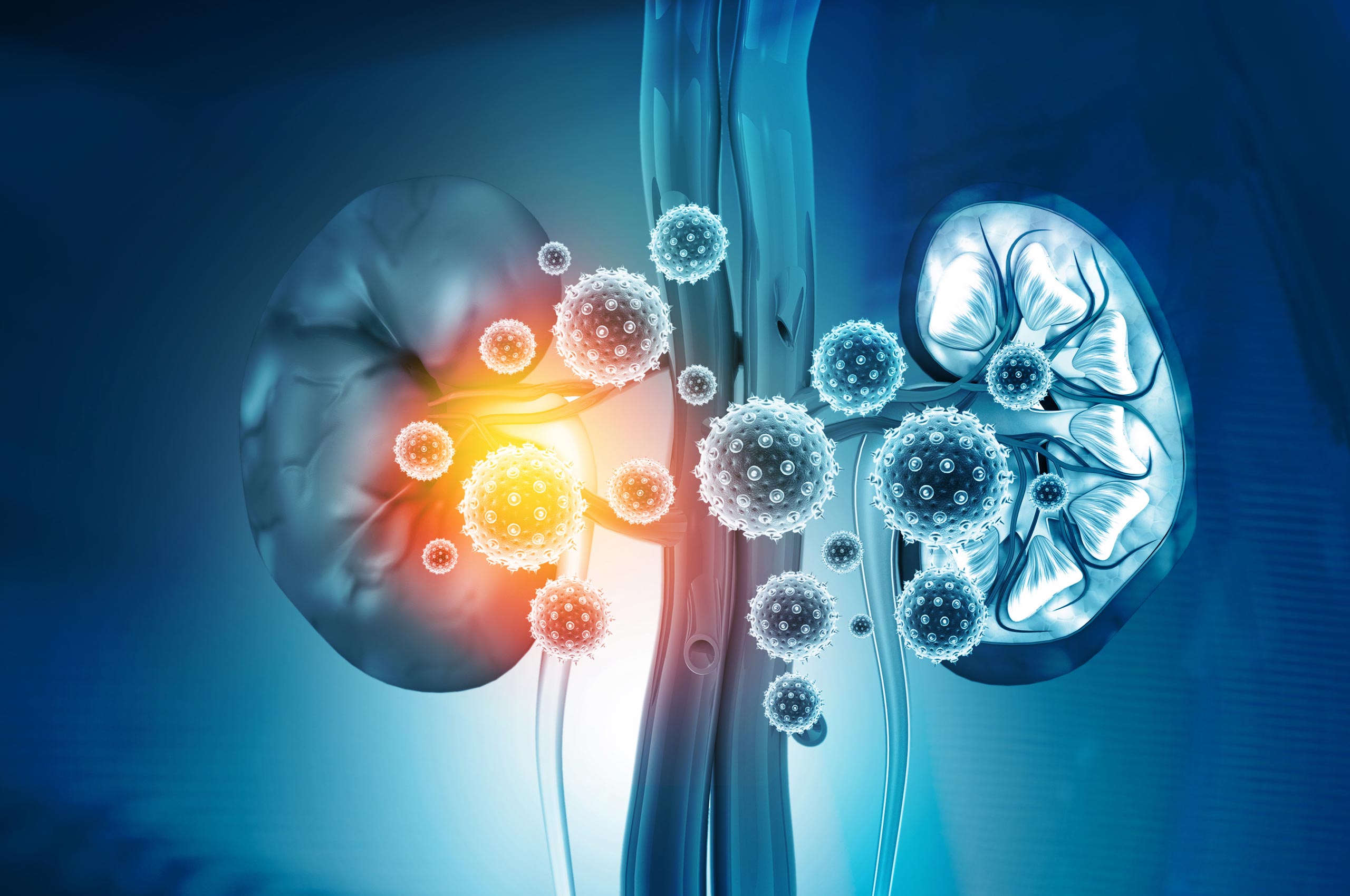Cardiorenal Disease Research

The mission of the Cardiorenal Division is to lessen the burden of those living with chronic kidney disease.
The mission of the Cardiorenal Division is to lessen the burden of those living with chronic kidney disease. There is no cure for chronic kidney disease (CKD), which affects more that 10 per cent of the world’s population1. Current therapies for CKD only slow the progression of disease and a significant number of people progress to end-stage kidney disease requiring either dialysis or kidney transplantation. People on dialysis are more likely to die of a cardiovascular event before getting a transplant2, and there is a significant shortage of available organs to be transplanted.
To achieve our mission, we aim to understand the cellular and molecular mechanisms that cause kidney inflammation and fibrosis in a range of kidney diseases, including in the pathology of hypertension and genetic kidney conditions. By understanding these pathways, new therapeutic strategies can be identified and targeted for patients suffering kidney disease. We use a multipronged approach to answering our research questions, including the use of pre-clinical models of kidney disease (transgenic fish and murine models) and advanced in vivo and in vitro tools.
We additionally use applied qualitative research methods to understand the perspectives of those living with chronic kidney disease. This research helps inform practice and policy for improved patient-centred outcomes.
Current Research Projects
Polycystic kidney disease (PKD) is a genetic kidney condition that affects over 12 million people worldwide and accounts for around 10% of all patients that require dialysis. Polycystic kidney disease progression is driven by inflammation; however this process is poorly understood. This project will investigate specific inflammatory pathways that lead to PKD. By understanding this, we aim to identify new druggable targets that may stop or even reverse the progression of PKD.
Inflammation drives both acute and chronic diseases and if unchecked can cause end-stage organ damage. Once initiated, inflammation is extremely hard to stop in the setting of kidney disease. This project aims to understand how an anti-inflammatory pathway may be manipulated to protect the kidney during injury.
The only treatment option for most people with end-stage organ failure is a transplant. While Australia does have fantastic long-term outcomes for transplanted recipients, the demand for organs significantly outweighs the supply. In Australia, most young people are not signed on to the national organ donor registry. This project aims to understand why that is, and to develop meaningful campaigns that encourage young people to think about organ donation.
Team members
- Dr Brooke Huuskes (Division head)
- Ms Jemma Gasperoni (Research Officer)
- Mr Hojjatullah Nasirie (Honours Student)
- Ms Emily Major (Honours Student)
1 Kovesdy CP. Epidemiology of chronic kidney disease: an update 2022. Kidney Int Suppl (2011). 2022 Apr;12(1):7-11. doi: 10.1016/j.kisu.2021.11.003. Epub 2022 Mar 18. PMID: 35529086; PMCID:
2PMC9073222..
2 Jankowski J, Floege J, Fliser D, Böhm M, Marx N. Cardiovascular Disease in Chronic Kidney Disease: Pathophysiological Insights and Therapeutic Options. Circulation. 2021 Mar 16;143(11):1157-1172. doi: 10.1161/CIRCULATIONAHA.120.050686. Epub 2021 Mar 15. PMID: 33720773; PMCID: PMC7969169.
